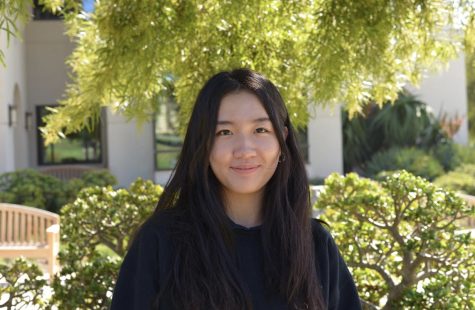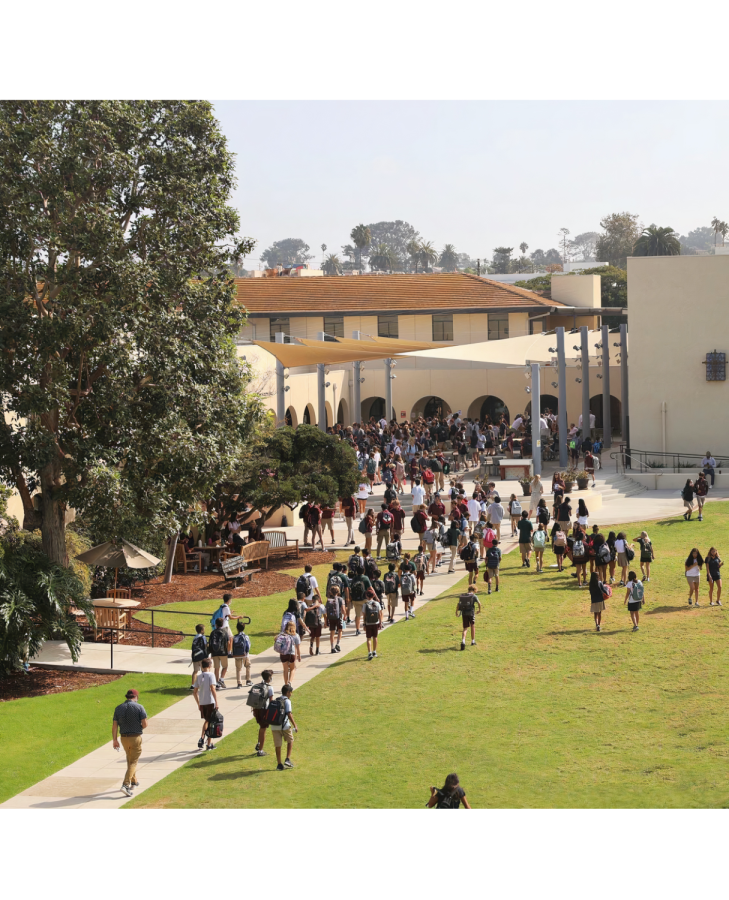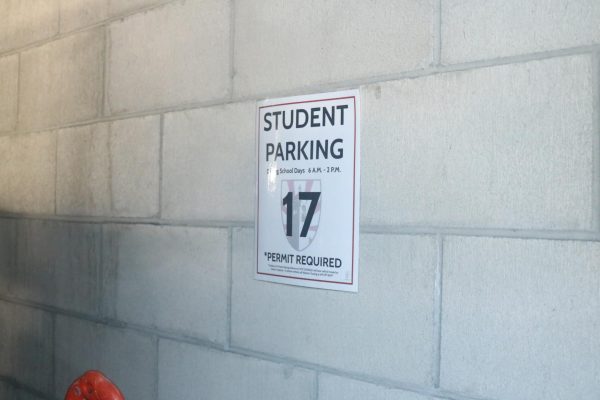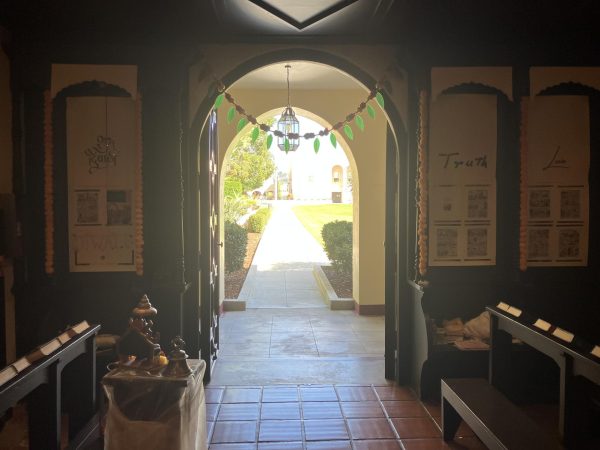Only So Much You Can Handle
Exploring our attitudes toward COVID-19 as yet another wave of case numbers spike
As students return to campus after two days of asynchronous learning, modifications in COVID protocols are seen everywhere from the cafeteria to the library’s study rooms.
Outside on the Quad, the sun shone brightly and the dewy grass gleamed in its greenness; familiar faces dotted the scene as groups of friends gathered, talked, and hugged. Even though the new school year had started almost a month ago, their excited chatter still echoed throughout our campus. Most of the students were wearing masks, they were outdoors, it was fine, of course it would be fine.
From the beginning, the COVID-19 pandemic has been dotted by premature projections of a restoration to normalcy, and the picturesque glow of mid-September was no exception. We were just coming to terms with Delta. Then, before we had a chance to finish our Thanksgiving leftovers, a newer and more transmissible variant called Omicron dominated our conversations. It seems that nearly two years into a dragging pandemic, each bit of news about yet another COVID surge can feel like too much to process.
“Burnout,” the psychological term for this all-consuming exhaustion and detachment, became a buzzword as schools across the country announced new closures, remote-only days, and extended breaks. Once again, the term has seeped into all corners of people’s lives just as “things were getting better.”
“I think one of the problems with everything we’ve all been through over the last few years is this uncertainty,” explained Director of Counseling Ms. Megan Broderick. “For instance, it’s like two steps forward and 20 steps back… I think it’s being out of our control, and also, not knowing what could possibly come next, that leads to some real challenges.”
As the pandemic drags on, student mental health is at the center of discussion. Coping with both transitions from online to in-person school and worries about their own and families’ safeties, many students find burnout adding on to the stress that defines the history of COVID-19. “Many people have been expressing concern about returning to old patterns of canceled sports tournaments, social gatherings, which just strip opportunities to build and reinforce relationships with students’ peers,” noted Abby Lin (‘23). “… These recent reminders of the past can be hard to cope with.”
Adding on to this thought, Elizabeth Jin (‘24) explained, “For myself at least, as much as I understand COVID guidelines are important in terms of managing the situation, following those guidelines has gotten progressively harder not because they have gotten more difficult to meet but rather because I feel tired of the pandemic.” She’s not alone in her outlook. “[The burnout] is definitely real,” said Will Keefe (‘23). “It’s especially hard now that we almost went to lockdown before going back in.”
However, some students also point out that such feelings of pandemic fatigue can come in different forms too. “I think that a lot of students have just accepted [the nature] of COVID surges and are not taking any further precaution than before the omicron surge. On the other hand, there is a number of students who are super stressed about this surge, and whose parents are stressed which leads to further isolation from peers,” noted Abby Beamer (‘22). “However, I think that a lot of students aren’t doing much coping, simply because they do not see it as a big deal.” Perhaps this is because people have become so over-exposed to devastating news about variants and the resulting spikes; as we make our way through the Greek alphabet, we generate less and less of an intense response to the happenings around us.
The extremities that accompany this issue demonstrate the importance of mental health within the lives of young adults. One of the biggest uncertainties about the case surging is our school life. As the second semester of our school year started asynchronously, it seemed as if going back to online was a potential option. Although Bishop’s has stated its commitment to in-person school, there were many changes that accompanied our recent return to campus. From modifications in the dining room to limited visitors on campus, the administration prepared for the increase in case rates within our community as students and faculty may test positive and have no symptoms or very mild symptoms after the holidays.
The scientific understanding of the virus is constantly changing and so, too, is the virus itself. Yet we keep scanning the horizon for an endpoint instead of accepting the way things are. As we continue to ride the pandemic roller coaster, learning to cope with our unpredictable world is not only feasible but also somewhat necessary.
As Ms. Broderick and many other trusted adults on campus echo, in times of isolation and distress, it’s important to have meaningful relationships and do things that genuinely bring you joy. “Try to keep perspective in times when there’s a lot that doesn’t feel in our control,” she said.
“Realize that COVID is probably not going to go away…we need to face reality and tackle it without bringing about the mental and physical health issues prominent in our discussions,” Will remarked. Abby Beamer added, “My only advice is to get tested if you feel sick and to not endanger your community. Get vaccinated and boosted!”
There are many things you can do as a student to help yourself and those around you to adopt a healthier attitude. “I try to make myself smile or laugh as much as possible,” explained Elizabeth. “Yesterday, I saw a bee with pollen on its legs and I pointed out to myself it looked like the bee was wearing yellow trousers.” Accepting the pandemic as a part of our daily lives does not mean discounting and minimizing the great loss and stress that we’ve experienced throughout the past few years; it is just offering a break from the worry so prominent in our world already today. Focus on the small things in your daily lives and find beauty within them.
For students currently experiencing view-only zoom and are quarantined, Reagan suggested, “If you’re at home during these challenging times, here’s my biggest advice: Don’t be afraid to reach out and ask for help from your teachers, and take advantage of the opportunities to zoom into class—even when you don’t have to,” she continued. “Also, instead of focusing on the things that are troubling you, take extra time to think about what you’re grateful for and talk to the people you love!”
Even in a pandemic, our capacity for catastrophe has a limit. We can live better lives while being cautious with keeping our community safe. Instead of treating our current lives as a deviation from the norm, we should accept this change our world has undergone and establish our own definitions of resilience.

Crystal Li joined The Tower in her freshman year when she moved from Shanghai to San Diego in 2019. Now a senior, she fondly looks back on the four-year...






